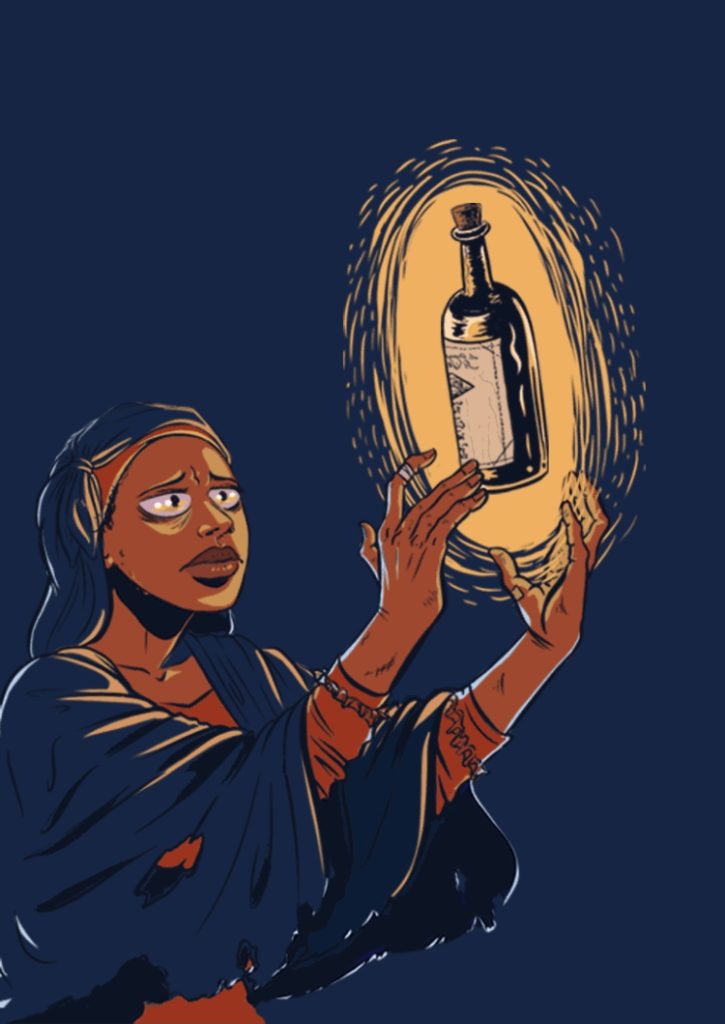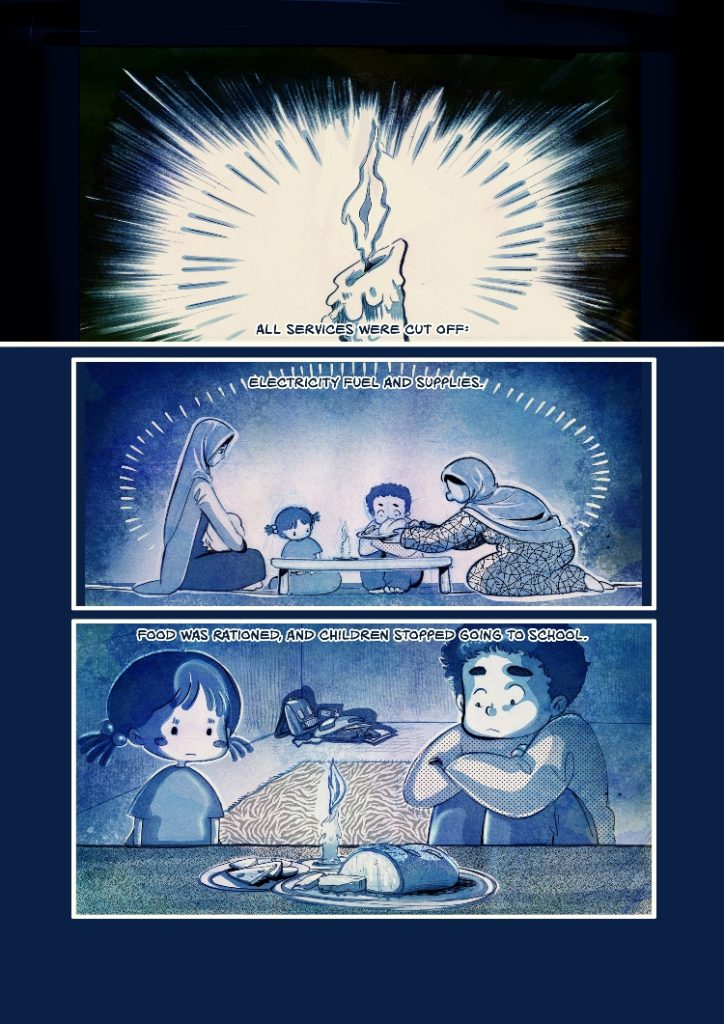Comics books have been on the Arab scene for a while now, way back in the 50s with Egypt’s first comic series Samir hitting the shelves. Back then, several comic books acted as a mirror of the country’s current affairs like Samir including depictions of the 1952 revolution and its aftermath. Today, more and more Arabs are continuing to bring their country’s stories and lives to the limelight.
It’s a great medium to do so because comic books are known for their easy-to-consume nature as they mainly consist of illustrations and are quite short. When it comes to Arab comic books that deal with more serious topics, it will give readers access to a more pacified, easy-to-digest platform to learn about their country. To delve into the world of illustrated stories, the Scoop Team curated a collection of contemporary Arab comic books that will give you a look at the intricacies of the current Arab narrative.
Being Illegal is Unbearable
Raised in the conservative Lebanese village Jiye, comic book artist Rawand Issa always had a lot on her mind that was bottled up. She needed to express herself and so took the journalism route for a while, yet, later she realized that comic books may be the best tool to express her concerns and innermost feelings. That is what brought her to create her first comic.
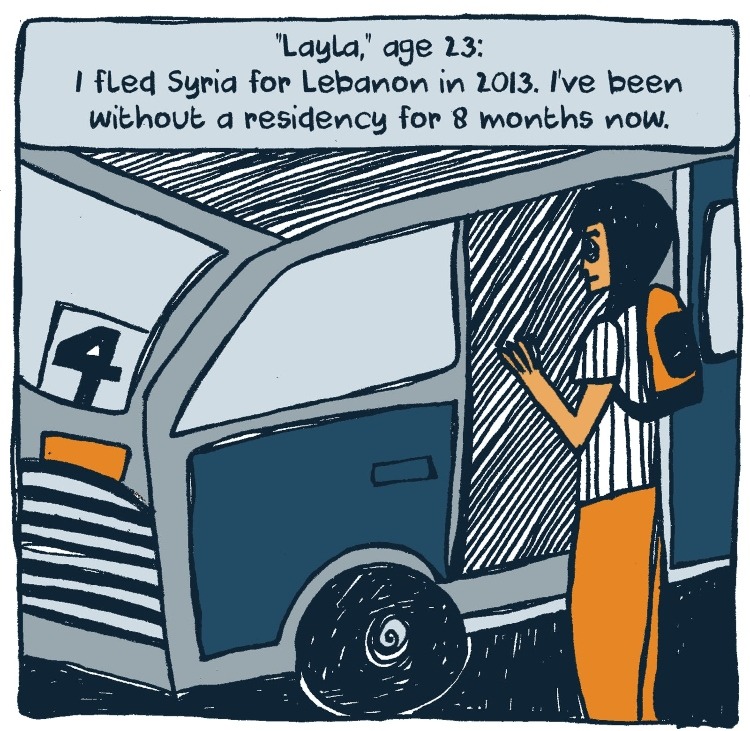
“Being Illegal is Unbearable” explores the struggle of Syrians taking refuge on Lebanese soil. Rawand was frustrated during that time period as stated by her in En Qantara, she felt that the Syrian community was treated unfairly and struggled to find a place to act as their new home. Throughout the comic, she depicts several Syrians attempting to navigate life in Beirut including one character, Layla attempting to get a student visa so she can remain legally in Lebanon. Both the story and the comic’s illustrations mirror that current landscape, with only three colors being used throughout: orange, blue and white. Restricting the illustrations to those three colors symbolize the stale nature of that experience.
Shobeik Lobeik
Egyptian Deena Mohammed has made a splash in the comic book world with her debut comic “Al Qahera” which depicts a Muslim Egyptian superhero that defies and goes against the standardized patriarchal norms of the country. Shen then returned with “Shobeik Lobeik,” a trilogy that reimagines modern-day Egypt and its people by using fantasy and magic to place a lens on the country’s class discrepancy.
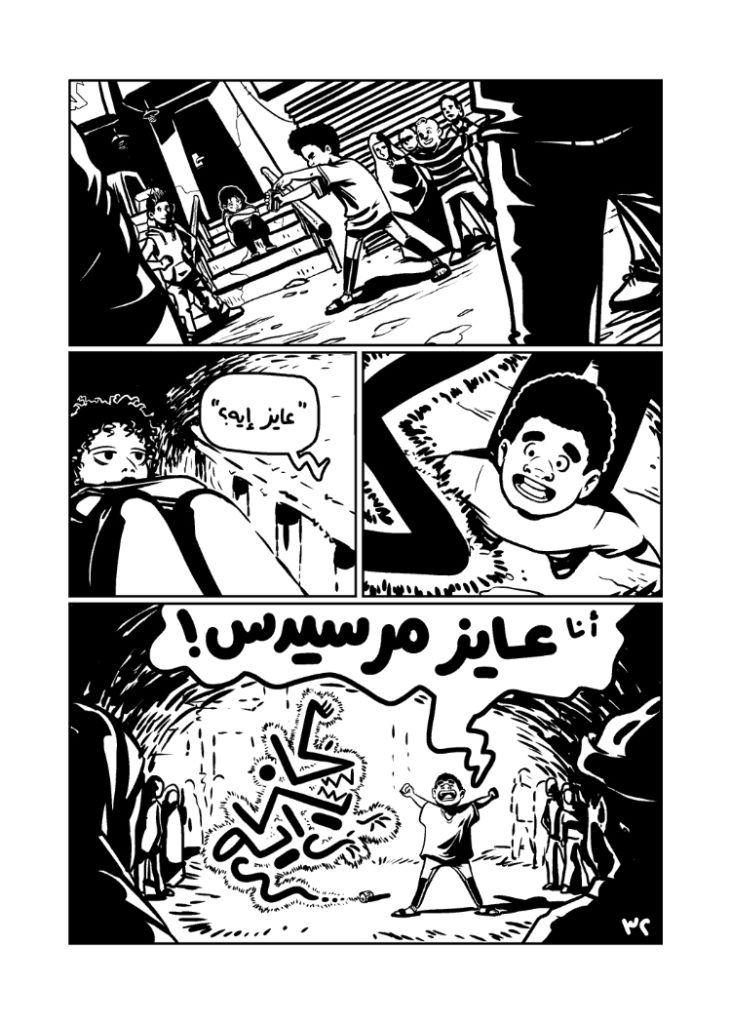
In that re-imagined world, the residents have access to three types of wishes: first-class wishes sold in the form of bottles, accessible only to the residents who can afford them, second-class wishes for the middle class, and third-class wishes sold in the form of cans, considered the most affordable and popular among the Egyptian population. The story is quite relevant as it gives a voice to the voiceless. Buying these bottled wishes showcases the innermost desires of each Egyptian, from each class and background.
Fayrouz Versus The World
Through “Feyrouz Versus The World,” Moroccan cartoonist and avid feminist, Zeinab Fasiki invites readers to explore the lives of women in the MENA region. Its main protagonist, Feyrouz, a second-year French literature student has a high spirit of wanderlust and wants to travel the world someday yet her movement is restricted due to firstly, not having a passport and secondly, due to her strict parents disallowing her from traveling until she is married.
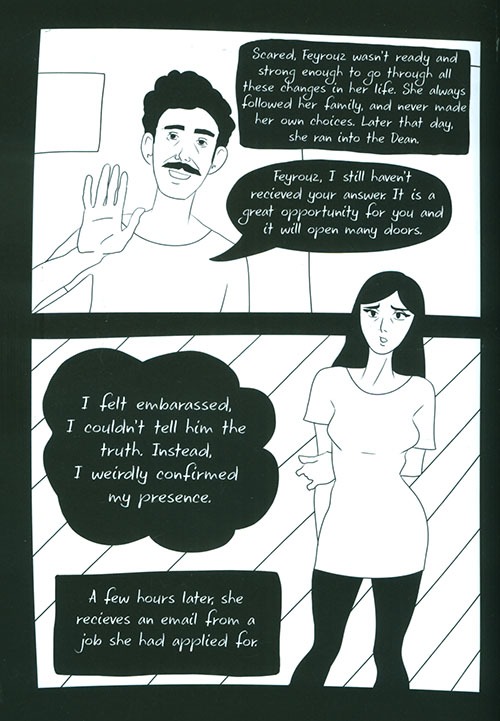
The story portrays a common struggle for women in the Arab region that is amplified in more conservative districts and neighborhoods. To showcase how the story is relevant to women around the Middle East, Zeinab takes a different approach with her choice of setting for the comic. Rather than showcasing the narrative in a specific Arab country, Zeinab’s story is instead set in the MENA region as a whole. Despite there being progress, her story is still relevant as many families still hold on to traditional ideals.
Lab 619
“Lab 619” may sound like a room you’d find in the science department of a university, yet, in reality, it is far from that. Established in 2013, this Tunisian magazine explores topics like migration, identity and the future. Within its pages, you will find comics illustrating the lives of the Tunisian people. One that stands out is by Tunisian artist Noha Habeib, who takes Tunisia forward a few years to a time when robots called BCD 30 hover over the country and read the minds of its residents.
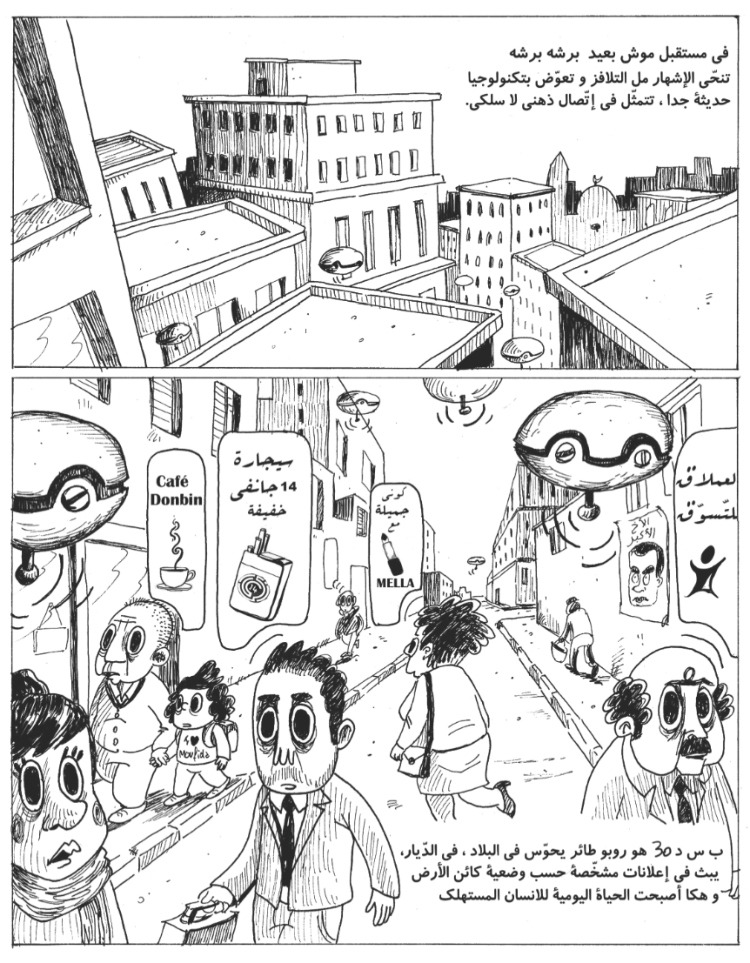
The aim behind this technology is for the government to gain access to the innermost desires of the residents to market Tunisian products they would want to buy. It’s a scary take on the culture of consumerism and amplifies what is already being performed in many countries around the world for example, the use of Cookies that are designed to collect information about people’s internet usage to know what products they’d want to buy.
In Our Own Hands
British-Libyan Asia Alfasi was always inspired by Japanese cartoons and art. Her childhood was saturated with everything anime related especially Arabic dubbed anime retakes on books like “Little Women” and “Les Miserables.” Another driving force behind her work is her passion for representing her heritage and culture in an accurate way to help people understand the Arab World in a better light.
She depicts these Arab stories through her manga-style comic books, a unique hybrid of two worlds to create new forms of narratives. One of her works, commissioned by UN Women Arabic is called In “Our Own Hands.” It depicts the story of Nora and the harsh realities she had to face during the events of 2014 in Iraq. She had to leave her community and head all the way to Kirkuk, a city in Iraq and begin a new life there. The story is heavy yet by expressing it through simple illustrations and text, it becomes easier to take in.
With these comics, diving into the intricacies of the political and social aspects of the Arab world is more accessible and fun. Let us know in the comments if there are any other Arab comics that offer easy access to the political and social sphere of the region.
WE SAID THIS: Don’t miss…Arabs In Comics: Here Are 10 Superheroes Of Middle Eastern Origin


